In St. Catherine, nature speaks a different language. While we — urban settlers —often speak of trees in our own terms, seeing them as beautiful scenery, the Bedouins in Sinai have taught me to not just think of nature aesthetically, but to also understand its various characteristics.
Trees speak in electrons, chemical bonds, water, nutrients, and carbon. Musallam Faraj, who has been guiding hikers for nearly 30 years in Sinai and is currently a head guide for Sinai Trail, knows nature’s language like it was his mother tongue. He knows of each tree’s leaves and nutrients, the night sky and its changing moods, and the safest spots to sleep in and gaze at the stars.
As a child, he traveled far to the east and west, walked deep into the northerly highlands of St Catherine, climbed the high peak of the mountains, and spent days and nights alone in the vast desert. He knows of all the hidden water wells located inside the mountains’ stomachs, and stories of nature always flow from his lips. He talks about the herbs, the camels, and the origins of the different plants.
Wherever we walked, and whatever new spot in the desert we reached, it was as if he had known that place his entire life. It was fascinating to witness just how much knowledge he had of his natural environment, yet this knowledge is not acknowledged by decision makers or the global climate movement.
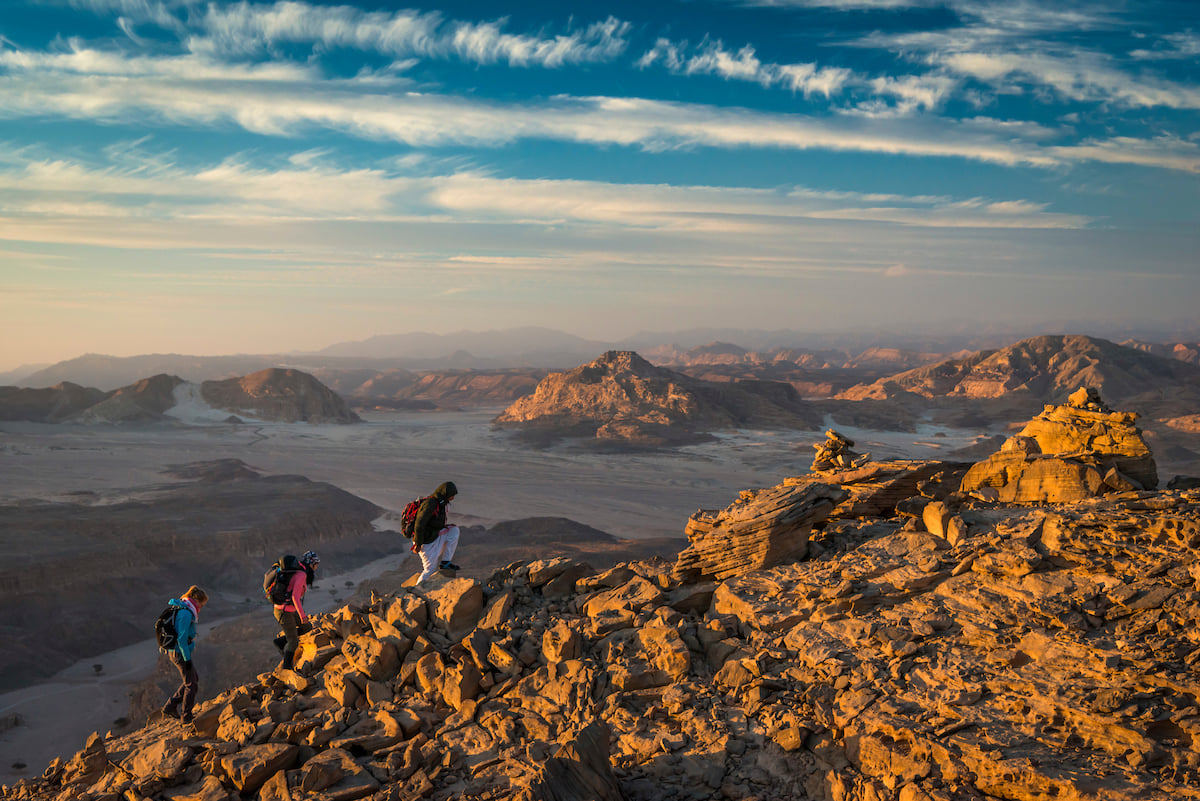
From October 6-8, more than 70 hikers from Egypt, Germany, Ireland, Costa Rica, Saudi Arabia, the USA, France and other countries walked into the wild, westerly highlands of St Catherine as part of the Sinai Trail’s initiative — Egypt’s first long distance hiking trail — to raise awareness on the value of Bedouin knowledge of the natural world and how it can shape global conversation about climate change ahead of COP27.
The hike also brought together all of the eight of South Sinai’s Bedouin tribes together.
“We want our voice to be heard at COP27. We want to share our knowledge of the natural world and offer guidance on how to live in the most sustainable way,” Faraj tells Egyptian Streets. “The topic of climate change has been co-opted by big businesses and politicians. They are creating fear to push people to switch to buying electric cars or other products and technologies for profit, but they are ignoring the local knowledge that communities have.”
For many years, the Bedouins have wandered around the harshest desert environments across Egypt, which helped them to build a knowledge of the natural world. Traditional Bedouin gardens, for instance, are just one of the examples of how Bedouin culture can offer guidance in living sustainably through its approach to rainwater harvesting, which can provide a sustainable mechanism for boosting food security in arid and dry regions.
However, this knowledge is being increasingly lost today as more Bedouins leave the desert to settle in towns due to the changing nature of the climate, but it remains alive in some segments of the Bedouin community.
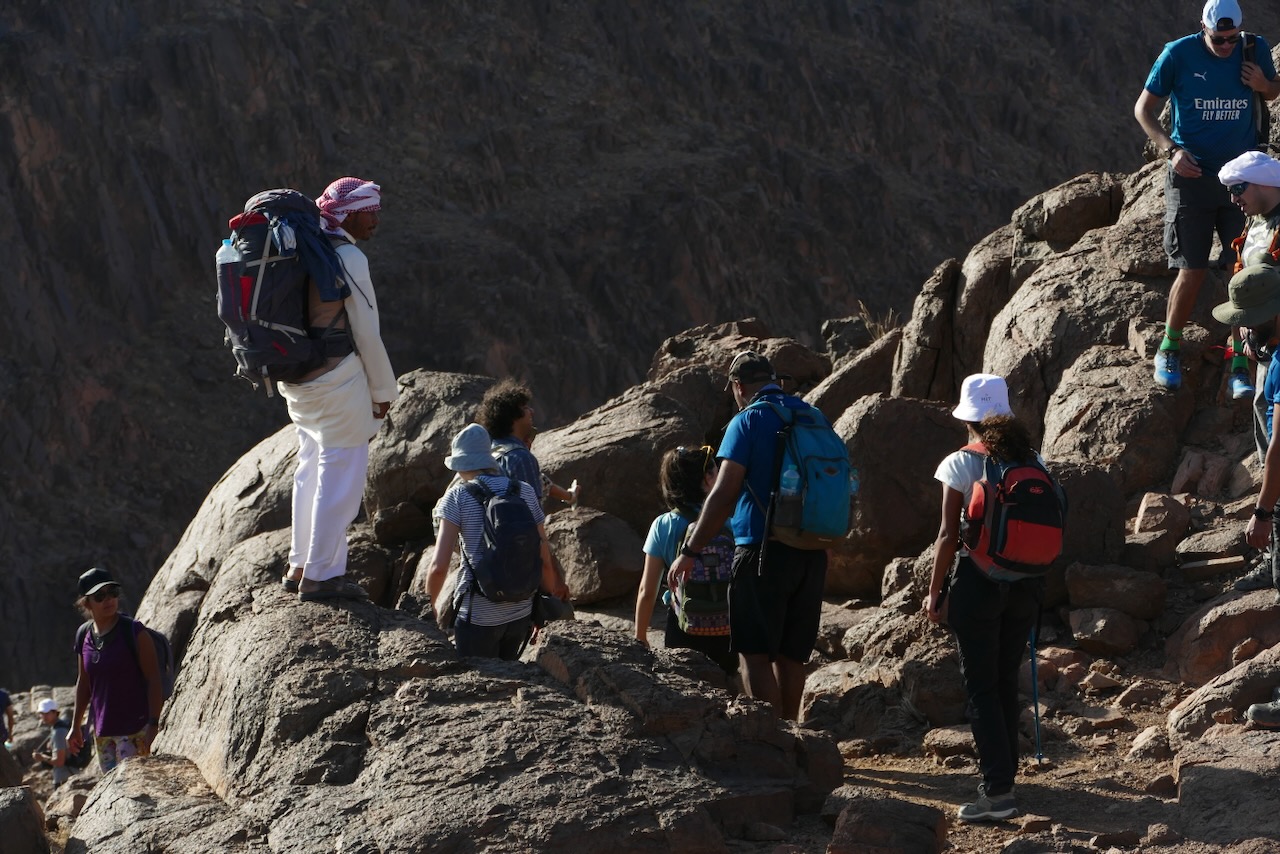
As is the case in many parts of the world, many rural communities today are at a crossroads. They could either stay in their farming village, where there is still not adequate infrastructure to face floods and droughts, or move to settle in the cities, which would mean leaving behind their culture and local traditional knowledge that has helped them to live in tune with nature for many years.
When Faraj was born, he says, he was born “in the middle of nowhere” in the desert.
He grew up with his family and learned how to live in tune with nature, using the animals for support in carrying seeds by eating the seeds and then dispersing the seeds across the desert.
“In the last 50 years, we moved away from the desert climate and became settlers in villages, after we noticed the impacts of climate change through droughts and floods,” he says. “But we need jobs and infrastructure to help us settle in the village, because rainfall has become infrequent and unpredictable, coming to different spots that we are not aware of and not in the right time. We don’t celebrate rainfall as we used to, because not all of us are prepared to face them.”
Regardless, Faraj carries hope that Bedouin knowledge will be kept alive through his hiking trails, as he asserts that the Bedouin tribes are keen on never leaving their environment even if conditions become more difficult, because they have learned to adapt over the years.
His dream is to set up his own Bedouin school and to see the trail blossom into a project that will keep Bedouin knowledge alive for many generations to come.
Scientists have raised the alarm around the dangers of losing Indigenous and local knowledge systems, noting that knowledge systems and practices of Indigenous Peoples and local communities play an indispensable role in protecting the biological and cultural diversity of the planet.
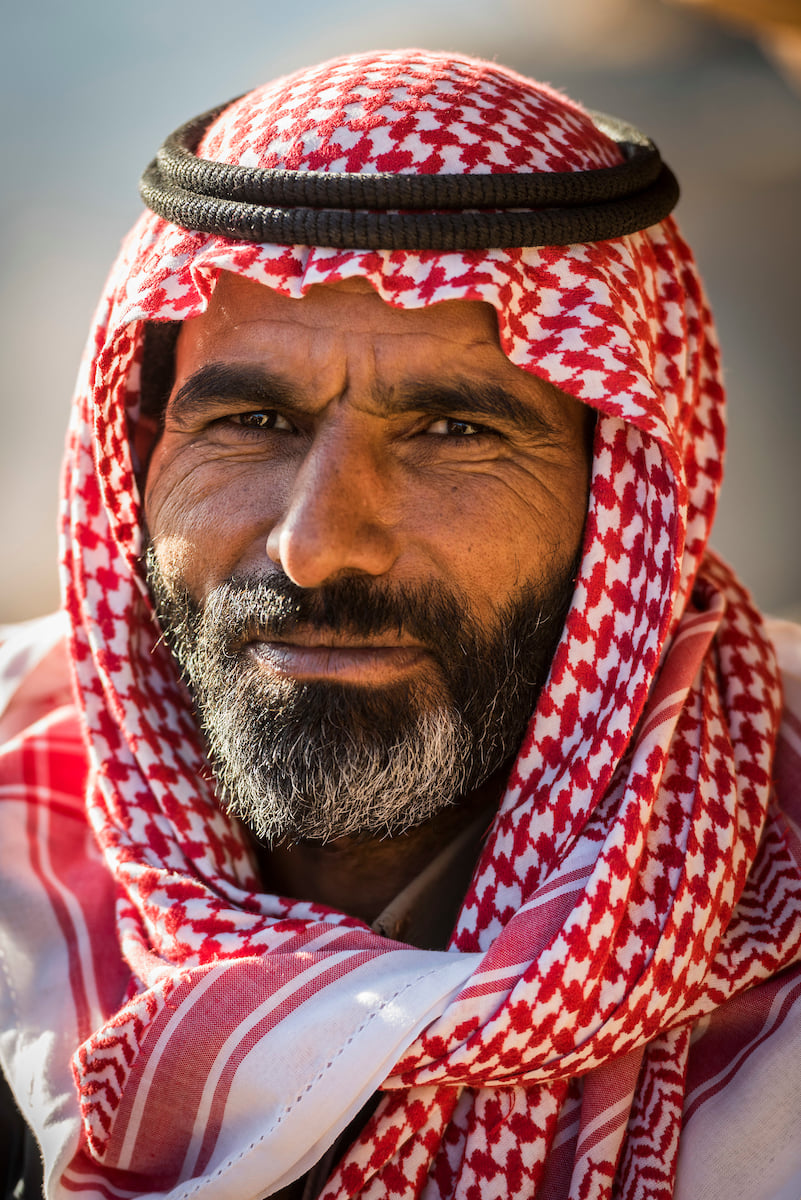
Since the first COP that was held in Berlin in 1995, the cultural and territorial rights of indigenous peoples were largely ignored. In 2015, the Paris Agreement legally recognized the role of traditional knowledge by local communities in combating the climate crisis, yet indigenous communities have complained about their lack of full participation in COP summits and UN-led negotiations.
“We invite the world to come to Sinai and experience the traditional Bedouin lifestyle, because we have to feel and be in nature in order to understand it. If we are not living in nature, then we will never understand it.”



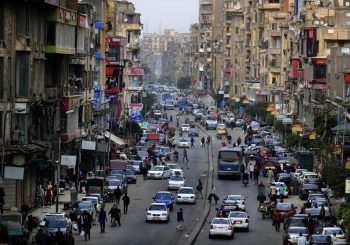
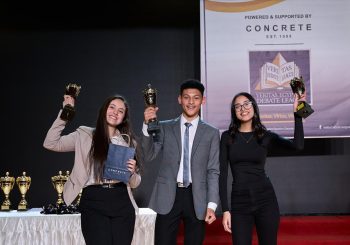
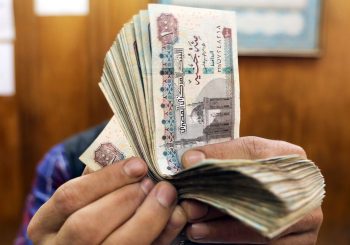
Comments (2)
[…] Faraj, one of the lead guides on the Sinai Trail, embodies the Bedouin’s deep connection to the land. With nearly 30 years of guiding experience, he knows […]
[…] Faraj, one of the lead guides on the Sinai Trail, embodies the Bedouin’s deep connection to the land. With nearly 30 years of guiding experience, he knows […]